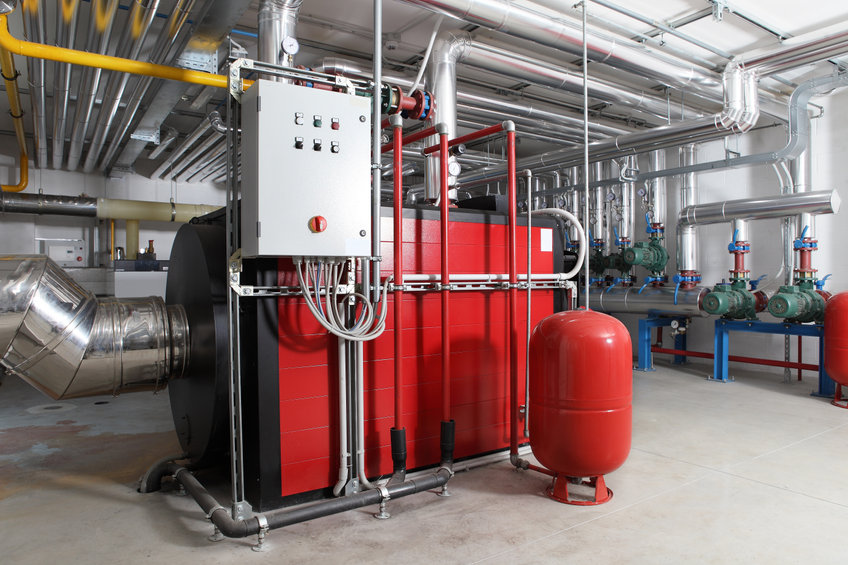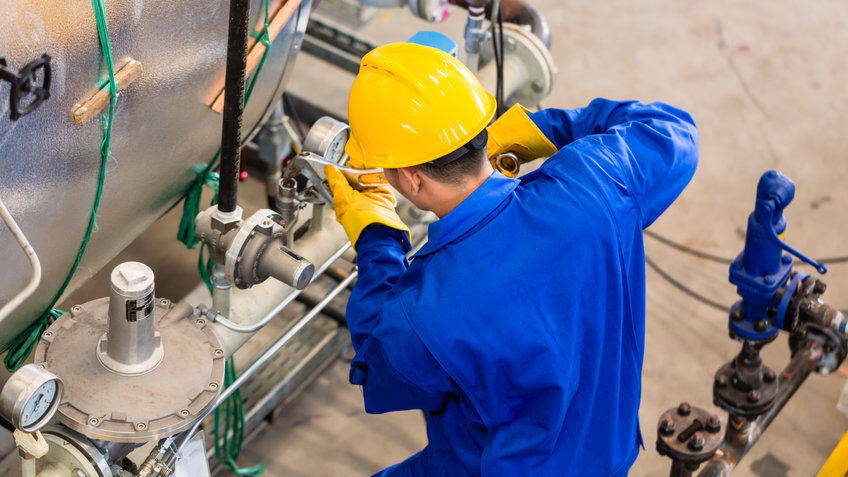Maximizing Air Compressor Efficiency Improves the Bottom Line
Because compressed air is widely used in industrial facilities, improving air compressor efficiency can create a competitive advantage as it will not only generate cost savings that will boost the bottom line, but it can also help your facility improve quality and achieve sustainability goals. While U.S. Department of Energy (DOE) statistics show that compressed air systems account for 10% to 30% of the energy used in the average industrial facility, the good news is that the energy efficiency of a typical compressed air system can be improved by 20% or more and most of the recommendations for improving efficiency are easy to accomplish. This means for very little effort and investment, you could be saving thousands of dollars annually on energy bills.

The Benefits of Air Compressor Efficiency
Efficient air compressors will perform at maximum potential while generating the least amount of friction and heat; therefore, the best way to increase the efficiency of an air compressor is to reduce the amount of energy needed to provide adequate operational performance. Doing so will not only save money on electric bills, which will boost the bottom line, but it will also enhance the sustainability of the facility because it helps conserve energy, minimize emissions and control pollution. It is likely that improved compressed air quality will also result, which may improve finished product quality.
How to Maximize Air Compressor Efficiency
The key to an efficient air compressor starts with the purchase of a well-designed, energy-efficient air compressor that is properly matched to the application and a control system that keeps it running close to the minimum required pressure; however, even the most efficient air compressor will lose efficiency over time. Fortunately, there are several ways to help offset operational performance losses and maximize the efficiency of your air compressor, including improving the quality of the intake air, eliminating leaks, improving the system design, minimizing pressure drop, avoiding inappropriate usage, and performing preventive maintenance.
- Improve Intake Air Quality: When the quality of the intake air is low, the air compressor will not function efficiently. The temperature, composition and humidity of the intake air are all contributors to the overall efficiency of the air compressor. Cool air will need less energy to compress, clean air will move more smoothly through the system and dry air will prevent damage that can reduce the operational efficiency of the air compressor and system components.
- Find and fix leaks: Leaks can waste as much as 30% of the energy produced by air compression systems. Leaks cause pressure drops that force the air compressor to work harder to supply the correct pressure, which decreases the efficiency of the system. The resulting pressure drops also have a negative impact on the effectiveness and reliability of the equipment that relies on compressed air to function. Leaks are often found around hoses, pipes and port connections so these areas should be inspected often. An ultrasonic leak detector can be used to find leaks and all leaks should be sealed to help boost performance and efficiency.
- Enhance system design: Even in situations where the air compressor is older or is not the most suitable choice for the application, tweaking the compressed air system design can help boost efficiency. Inspect the delivery lines and straighten any bends, loops or kinks that restrict airflow and, if possible, eliminate any long runs of pipe or tubing as all of these can result in pressure drops. The addition of a storage tank can help reduce the impact of short-term increases in demand, which will also help prevent pressure drops and overworking the air compressor. Moving the compressor to a cooler location will help reduce the temperature of the intake air, which will reduce the amount of energy needed to cool the air for compression. Adding a heat recovery system can help capture and reuse the heat generated by normal air compressor operation. Repurposing wasted heat to warm ambient air or providing warm water in the facility can help offset the costs of electricity and increase sustainability.
- Eliminate pressure drops: Pressure drops naturally occur as the compressed air travels from the air compressor to the point of use; however, undersized or complicated pipework and blockages in the distribution system can add to the issue, as can leaks and dirty air filters. As mentioned above, eliminating leaks and/or long runs of pipe and bends in tubing can help eliminate pressure drops. Also ensure that the correct size and level of filtration are being used and be sure to check, clean and change filters on a regular basis. Sensors can be used to send alarms regarding pressure changes and to notify maintenance when filter changes are needed. When you reduce the pressure drop, the air compressor will function more efficiently and reduce energy consumption.
- Avoid inappropriate usage: While compressed air is often used to clean workspaces or create a vacuum, it is not the most energy-efficient way to do these and many other tasks for which it is employed. Look around the facility for ways in which compressed air use might be inappropriate and replace it with a more suitable and energy-efficient method, such as using air blowers for removing dust and dirt or a vacuum pump to create a vacuum.
- Perform preventive maintenance: Creating and adhering to a preventive maintenance schedule for your air compressor is one of the easiest ways to increase efficiency, while also ensuring reliability and capacity. Regular maintenance should include cleaning or changing dirty air filters, checking oil levels and ensuring proper lubrication, inspecting and cleaning the coolers, draining tank condensate, check automatic condensate drains for proper operation, inspecting hoses and pipes for cracks and corrosion, finding and fixing leaks, and monitoring for unusual vibration and noises. Check equipment control panels regularly for any service or maintenance indicators.

Taking the time to perform maintenance, inspecting the system often and taking steps to improve system design is worth the effort as it will ensure that the system runs smoothly and optimally and is available at all times, while also achieving significant reductions in energy consumption, all of which will boost the bottom line and provide a competitive edge for your facility.
For more information about increasing air compressor efficiency, please contact JHFOSTER.